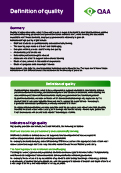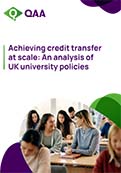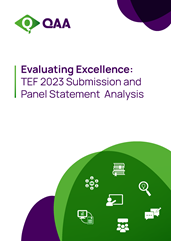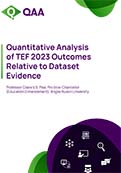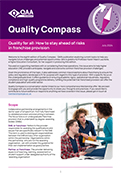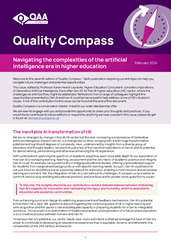
Office for Students strategy consultation response
Publication date: 20 Feb 2025
This document details QAA's response to the Office for Students' consultation on its new strategy for 2025 to 2030, including its proposals for an integrated quality model and a quality risk register.
| Author: | QAA |
|---|---|
| Format: | |
| Size: | 0.22 MB |

